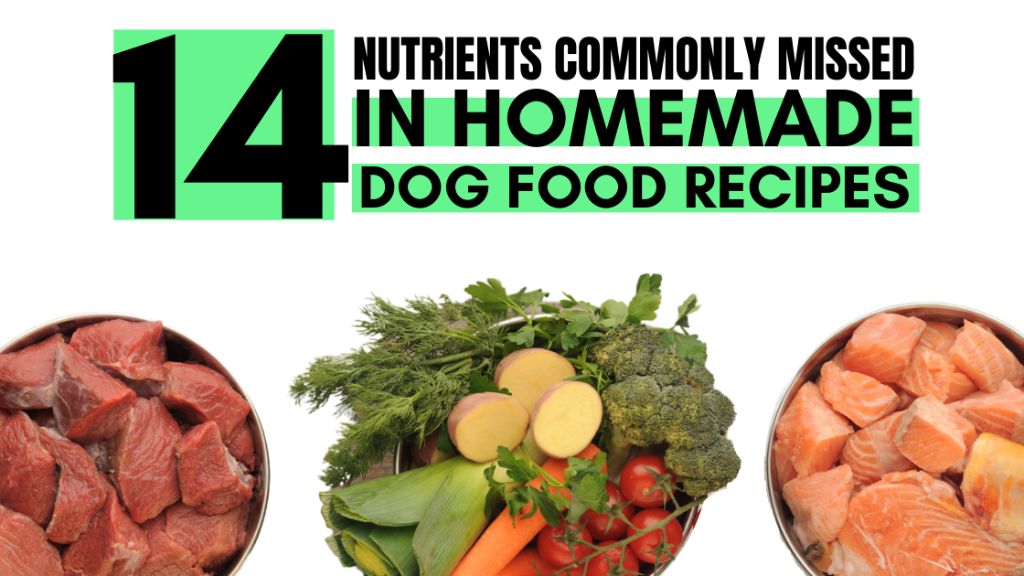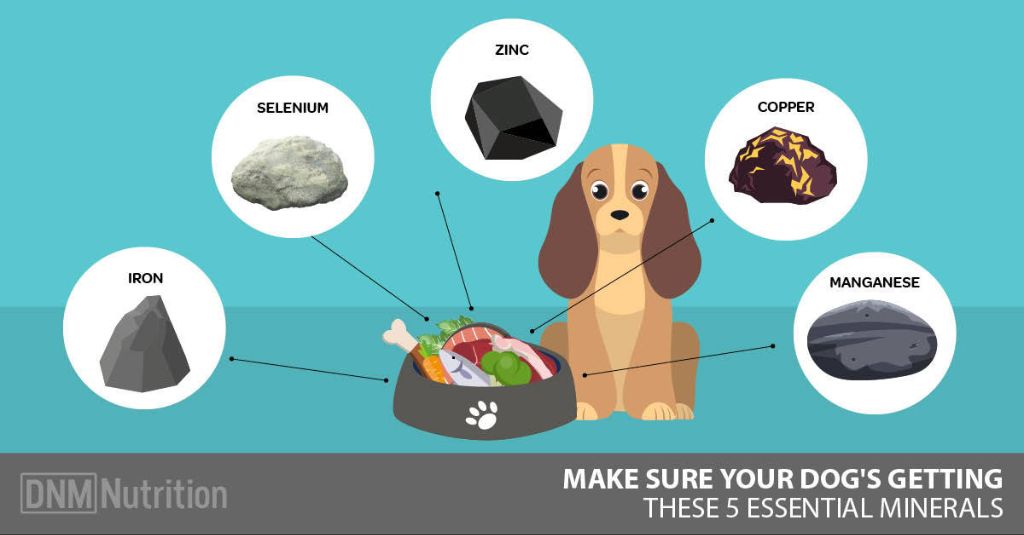Introduction
Homemade dog food has become an increasingly popular option for many pet owners who want to provide a natural, nutritious diet for their furry companions. Home cooking allows for a high level of control over exactly what ingredients the dog is eating. However, this also means the responsibility falls on the owner to ensure the homemade meals are fully balanced and complete for long-term health. Unlike commercial pet foods which are formulated by nutrition experts, homemade dog food risks certain nutrient deficiencies if not prepared properly.
When it comes to nutrition, dogs have different dietary needs than humans. According to the American Kennel Club, it’s important homemade dog food contains the right proportions of protein, carbohydrates, fat, vitamins, and minerals. While real, unprocessed ingredients are ideal, most homemade recipes still require additional supplements to avoid gaps. This makes understanding dog nutritional requirements and proper supplementaion essential.
Benefits of Homemade Dog Food
There are several benefits to feeding your dog a homemade diet versus commercial kibble according to veterinary nutritionists. The main advantage is having more control over the ingredients and nutrients that your dog is eating (1). With homemade food, you can select high-quality proteins, healthy fats, and digestible carbohydrates tailored to your dog’s needs.
You can also avoid fillers, by-products, artificial preservatives, colors, and flavors. Further, you can cater the diet to your dog’s allergies or intolerances if needed. Homemade diets give you the ability to closely monitor portions as well. This increased control over the food allows you to provide balanced nutrition for optimal health.
Potential Nutrient Gaps

While homemade dog food has many benefits, it can often be lacking in certain essential vitamins and minerals without proper supplementation. According to https://thecaninehealthnut.com/14-nutrients-commonly-missed-in-homemade-dog-food-recipes/, some common deficiencies seen in homemade dog food recipes include calcium, iron, magnesium, potassium, copper, zinc, vitamin E, vitamin B12, and omega-3 fatty acids. Homemade food is typically lower in calcium than commercial dog food, which can negatively impact bone health if not properly supplemented.
According to https://opalpets.com/blogs/news/5-key-nutrients-that-can-be-missing-in-home-cooked-dog-food, other key nutrients that may be missing without supplementation include choline and vitamin B3. Choline is important for brain and liver health, while vitamin B3 aids in digestion and energy production. Both play crucial roles in canine health and development.
Without ensuring proper amounts of these essential vitamins and minerals, dogs eating a homemade diet may develop deficiencies over time leading to health issues. Being aware of potential nutrient gaps and addressing them through balanced recipes or supplements is key for dogs eating homemade food.
Important Vitamins for Dogs
There are certain key vitamins that are crucial for a dog’s health and wellbeing. When making homemade dog food, it’s important to ensure these vitamins are included or supplemented to prevent deficiencies.
Vitamin A

Vitamin A is essential for good vision, a robust immune system, healthy skin and coat, and proper bone development in puppies. Dogs cannot produce this vitamin naturally so it must come from food sources like liver, dairy products, and colorful fruits and vegetables like carrots, sweet potatoes, spinach, and cantaloupe (Source 1).
Vitamin B
The B complex vitamins help dogs convert food into energy and maintain healthy skin, coat, nerves, and muscles. Important B vitamins for dogs include thiamine (B1), riboflavin (B2), niacin (B3), pantothenic acid (B5), pyridoxine (B6), folic acid (B9), and cobalamin (B12). These can be found in meats, eggs, dairy, legumes, and whole grains (Source 2).
Vitamin C
While dogs naturally produce some vitamin C, supplemental dietary sources help boost immunity and collagen production for wound healing. Vitamin C also acts as an antioxidant. Sources include citrus fruits, berries, tomatoes, potatoes, broccoli, spinach, and liver (Source 3).
Vitamin D
Vitamin D helps dogs absorb calcium and phosphorus for healthy bones and teeth. Natural food sources are limited, so sunlight, fortified foods, or supplements help prevent deficiency. Excess vitamin D can also be toxic, so moderation is key.
Vitamin E
Vitamin E boosts immunity, cardiovascular health, and cognitive function in senior dogs. It also has antioxidant properties. Sources include vegetable oils, nuts and nut butters, seeds, leafy greens, and whole grains.
Important Minerals for Dogs
Minerals play a critical role in a dog’s health and wellbeing. When making homemade dog food, it’s important to ensure adequate levels of key minerals are provided. Some of the most important minerals for dogs include:
Calcium – Calcium is essential for strong bones and teeth. It also supports muscle and nerve function. Most dogs need around 1 gram of calcium per 1 kg of body weight daily. Calcium is found in bone meal, dairy foods like yogurt, and some vegetables like broccoli.
Phosphorus – Phosphorus works with calcium to build strong bones. The optimal calcium to phosphorus ratio is between 1:1 to 2:1. Too much phosphorus can inhibit calcium absorption. Phosphorus is found in meats, milk, eggs and fish.
Magnesium – Magnesium supports over 300 enzyme systems and physiological processes in the body. It promotes nerve functioning, heart health, strong bones and muscle function. Most dogs need around 100-200 mg per kg of body weight daily. Magnesium rich foods include spinach, fish, meat, beans and bananas.
Iron – Iron helps transport oxygen in blood and supports immune function and energy levels. A deficiency can lead to anemia. Most dogs need 7.5-100 mg of iron daily depending on size. Iron is found in organ meats, fish, poultry and eggs.
When feeding a homemade diet, it’s important to consult your vet and use a supplement to help balance key minerals like calcium, phosphorus, magnesium and iron. A lack of these minerals can have detrimental effects on a dog’s health. Citations: PetMD, Hill’s Pet

Supplement Options
There are several ways to supplement a homemade diet to ensure your dog is getting all the necessary vitamins and minerals. Some options include:
Vitamin powders – These are powdered vitamin and mineral mixes designed to be added to homemade dog food. Some popular options include The Honest Kitchen’s Daily Powder, Nupro Supplements, and Dr. Harvey’s Veg-To-Bowl
Oils – Oils like fish oil and coconut oil contain beneficial fatty acids. Fish oil provides omega-3 fatty acids EPA and DHA, while coconut oil has medium chain triglycerides. Adding an oil to homemade food increases calorie density.
Whole foods – Incorporating whole foods like eggs, sardines, dark leafy greens, carrots, and blueberries adds extra nutrition. Try rotating through different protein, veggie, and fruit sources for variety.
Talk to your vet if you need help determining the right supplement approach when feeding a homemade diet. The goal is to fill any potential gaps without oversupplementing.
Tips for Balancing Homemade Food
When making homemade dog food, it’s important to ensure the meals are nutritionally balanced. Here are some tips:
Vary the protein sources – Using a variety of proteins like chicken, turkey, beef, eggs, and fish can help provide a complete amino acid profile. Rotate through different proteins to add variety.1
Consult your veterinarian – Talk to your vet about any homemade dog food recipes you want to try. They can review the ingredients and nutrient breakdown to ensure it will meet your dog’s needs.2
Follow nutritionally balanced recipes – Look for recipes formulated by veterinary nutritionists or that have been tested to meet AAFCO standards. This helps ensure all nutrient needs are met.3
Use a supplement if needed – Some recipes may call for a vitamin/mineral supplement to fill in any nutritional gaps. Consult your vet on whether a supplement is recommended.
Monitor your dog’s health – Pay attention to energy levels, skin, coat, appetite, etc. to ensure the diet is providing balanced nutrition. Adjust as needed.
Potential Health Risks
While homemade dog food can provide great benefits, there are some risks to be aware of. The biggest risk is nutrient deficiencies or imbalances. Homemade food may not provide complete and balanced nutrition for your dog unless carefully formulated by a veterinary nutritionist. According to UC Davis, deficiencies and imbalances in calcium, phosphorus, vitamins D and E, and some trace minerals are commonly seen in home-prepared recipes.
It’s important to consult with your vet and use a recipe formulated by a veterinary nutritionist to avoid deficiencies. Signs of deficiency include poor coat quality, dental problems, impaired immune function, poor growth, and more. Providing homemade food that lacks essential nutrients can negatively impact your dog’s health over time.
Signs of Nutrient Deficiencies

Dogs with nutrient deficiencies may exhibit several signs related to their poor coat, skin, and energy levels. According to Vetericyn, lack of nutrients can lead to hair loss, skin disease, and infections. The coat may appear dull and dry with excessive shedding and dandruff. The skin may be flaky or irritated. Lethargy and lack of energy are also common when dogs do not receive adequate nutrition, as noted by Porch Potty. Additional signs include a sad or tired facial expression and sudden changes in behavior.
Key deficiencies to look for relate to protein, fatty acids, vitamins A and B, and minerals like zinc and copper. Consulting with a veterinarian can help diagnose the specific deficiencies based on your dog’s symptoms. Ensuring your homemade meals provide balanced nutrition or supplementing as needed is important to avoid health complications.
Conclusion
While feeding homemade food can be extremely healthy for dogs when done correctly, that “when done correctly” piece is crucial. It requires a bit of effort on the owner’s part to ensure the food is nutritionally balanced and does not lead to any deficiencies over time.
Some key points here include:
- Many dogs do well on homemade food, but some nutrients will likely need to be supplemented especially over the long term.
- Important vitamins to consider adding include A, E, B vitamins, and Vitamin D.
- Key minerals that may need supplementation include calcium, phosphorus, iodine, iron and zinc.
- Consult with your veterinarian to determine if any bloodwork might be useful to identify any deficiencies.
- Look for a high quality vitamin/mineral supplement designed for homemade dog foods.
- Rotate proteins, veggies and starches to provide balanced nutrition.
In summary, with smart supplementation and recipe formulation, homemade dog food can be extremely healthy. But owners do need to put in extra care and effort to ensure it provides complete and balanced daily nutrition. Check with your vet if ever concerned your dog’s health or energy levels change.
